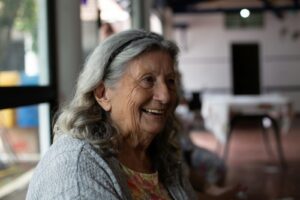Elderly should consider residential care at a younger age, study suggests
The elderly should consider moving into assisted or residential care before health problems force them to, according to academics.
The study, called ‘When Frail Older People Relocate in Very Old Age, Who Makes the Decision?’ was published earlier this month in Innovation in Aging and includes research from the University of East Anglia and the University of Cambridge.
The research team say that thinking about moving earlier would help older people have more involvement in decision-making and could lead to better outcomes for all involved as their research suggests that older people are rarely involved in decisions about moving due to the urgency of their health crisis or cognitive decline.
Researchers studied interviews with a rare cohort of participants who were all aged over 95, most with some level of cognitive impairment, and their families.
They were the 42 surviving participants of the Cambridge City over-75s Cohort Study – a long-term study of older people that started in 1985 from a survey of more than 2,600 men and women aged over 75.
They identified 26 who had moved after turning 95 and interviewed 20 of them. Six were too frail to take part. The oldest interviewee was 101.
Dr Morag Farquhar, from UEA’s School of Health Sciences, said: ‘A minority of older people choose to move to age friendly housing before the onset of disability – but the majority prefer to grow old in their own homes and put off moving until a health crisis forces them to.
‘We know that in some cases the decision to move an elderly person is made by others who may override the older person’s views and preferences – or even without their full consent.
‘While family members usually prioritise safety and security, older people may well strive to maintain their own independence.
‘We wanted to find out more about the decision-making process when very old people move – either into a care home or to live with family.
‘The likelihood of moving involuntarily increases with age and those over 80 are in the high risk bracket. Moves at this time of life are often driven by incidents like serious injury from a fall, hospitalisation or the death of a spouse who has been acting as a carer.’
Photo Credit – Pixabay















